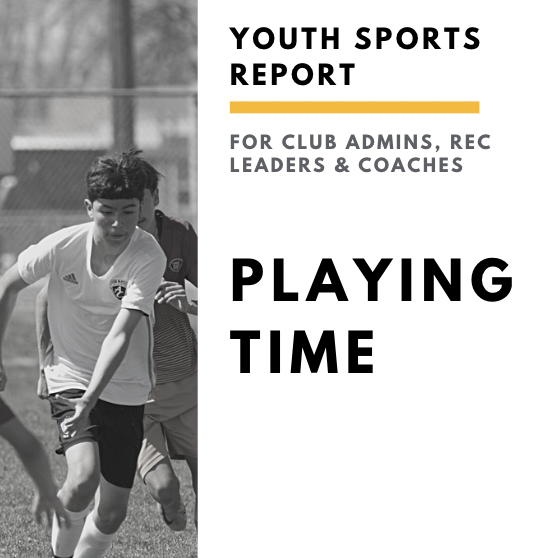Get our exclusive report. Download the iSport360 Club Switching Report Here – For Club Admins, Rec Leaders and Coaches.
How Coaches Can Inspire Peak Performance
Coaching youth sports is about more than teaching skills and strategies—it’s about inspiring young athletes to perform at their best while instilling confidence, teamwork, and a love for the game. Inspire peak performance and motivate a team to reach its highest potential requires understanding the unique needs of young athletes and creating an environment that fosters growth and positivity. Here are proven strategies to help youth sports coaches motivate their teams and unlock their full potential.

1. Set Clear and Achievable Goals
Young athletes thrive when they have clear objectives to work toward.
- Short-term Goals: Break down larger goals into smaller, achievable milestones, like improving a specific skill or executing a new play during practice.
- Team Goals: Encourage collaboration by setting team-focused goals, such as achieving a certain number of assists in a game.
- Celebrate Progress: Recognize and celebrate when goals are met, reinforcing a sense of accomplishment.
2. Build Strong Relationships with Players
A coach who genuinely cares about their players creates an atmosphere of trust and respect.
- Know Your Players: Learn about their strengths, weaknesses, and personal interests.
- Be Approachable: Create a safe space where players feel comfortable sharing concerns or asking for advice.
- Show Empathy: Understand that young athletes face pressures both on and off the field.
3. Foster a Positive Team Culture
Positive reinforcement and a supportive team environment go a long way in boosting morale.
- Highlight Effort, Not Just Results: Praise hard work and improvement, even if the outcome isn’t perfect.
- Encourage Peer Support: Promote an atmosphere where teammates uplift each other.
- Address Negativity Quickly: Handle conflicts or poor attitudes immediately to maintain team cohesion.
4. Make Practices Engaging and Fun
Monotony can lead to disengagement. Keep practices fresh and exciting to maintain enthusiasm.
- Incorporate Games: Use mini-games and challenges to teach skills in a fun way.
- Vary Drills: Rotate between different drills to target various skills and avoid repetition.
- Celebrate Wins in Practice: Small victories during practice can build confidence for the real game.
5. Be a Role Model
Coaches set the tone for their teams.
- Exhibit Sportsmanship: Show respect for officials, opponents, and players.
- Stay Calm Under Pressure: Demonstrate how to handle challenging situations gracefully.
- Be Consistent: Stick to your values and principles, showing fairness in all situations.
6. Empower Players with Leadership Opportunities
Giving athletes a sense of responsibility can increase their investment in the team’s success.
- Rotating Captains: Allow different players to lead warm-ups or huddles.
- Encourage Peer Coaching: Let more experienced players mentor younger teammates.
- Involve Players in Decision-Making: Seek their input on strategies or team-building activities.
7. Use Motivation Techniques
Different players respond to different types of motivation.
- Positive Reinforcement: Recognize effort and achievement with verbal praise or rewards.
- Visual Motivation: Use videos of professional athletes or past games to inspire.
- Create Traditions: Team rituals, chants, or pre-game routines can build camaraderie and excitement.
8. Focus on Individual Growth
Not every player is at the same skill level, so tailor feedback and goals to individual needs.
- Offer Constructive Criticism: Provide specific and actionable advice that helps players improve.
- Track Personal Progress: Show players how far they’ve come by highlighting improvements over time.
- Celebrate Unique Strengths: Each player contributes differently—recognize and celebrate these contributions.
9. Teach Resilience
Failure and setbacks are part of sports—and life.
- Normalize Mistakes: Emphasize that errors are learning opportunities, not failures.
- Reframe Losses: Focus on what the team can improve upon rather than dwelling on the defeat.
- Build Mental Toughness: Teach techniques like visualization and positive self-talk to help players stay motivated.
10. Make It About More Than Winning
While winning is exciting, youth sports should also emphasize personal growth, teamwork, and fun.
- Instill Life Skills: Highlight the importance of discipline, respect, and accountability.
- Celebrate Non-Sports Achievements: Recognize players for academic success or acts of kindness.
- Encourage a Lifelong Love for the Game: Focus on making the experience enjoyable so players stay engaged long-term.
Conclusion
Motivating a youth sports team to perform at its highest level requires a balance of skill development, relationship-building, and positive reinforcement. By fostering a supportive and engaging environment, coaches can inspire young athletes to not only excel on the field but also grow as individuals. Remember, the ultimate goal is to help players develop a love for the game and the confidence to succeed in all areas of life.
iSport360 is the only app that does it all for youth sports. For more information on what we do, click here.
About the author:
Amy Masters is a sports mom, coach, and club administrator. She has been coaching youth sports for more than 10 years. She started Jr Lions Field Hockey, the youth recreation program for the Hunterdon County community growing it from 40 players in year 1 to 150 players by year 3. A few years later, she saw the love and competitiveness grow then started Omega Field Hockey Club serving NJ and PA players. Before coaching, she was a collegiate field hockey player for Lock Haven University. In her spare time (lol), she is head of marketing for iSport360 and the co-editor of the Youth Sports Survival Guide. The Youth Sports Survival Guide is the largest youth sports newsletter in the world.
Learn more or request a demo of our youth sports software that is helping teams improve communication, organization and player development.
December 10, 2024





